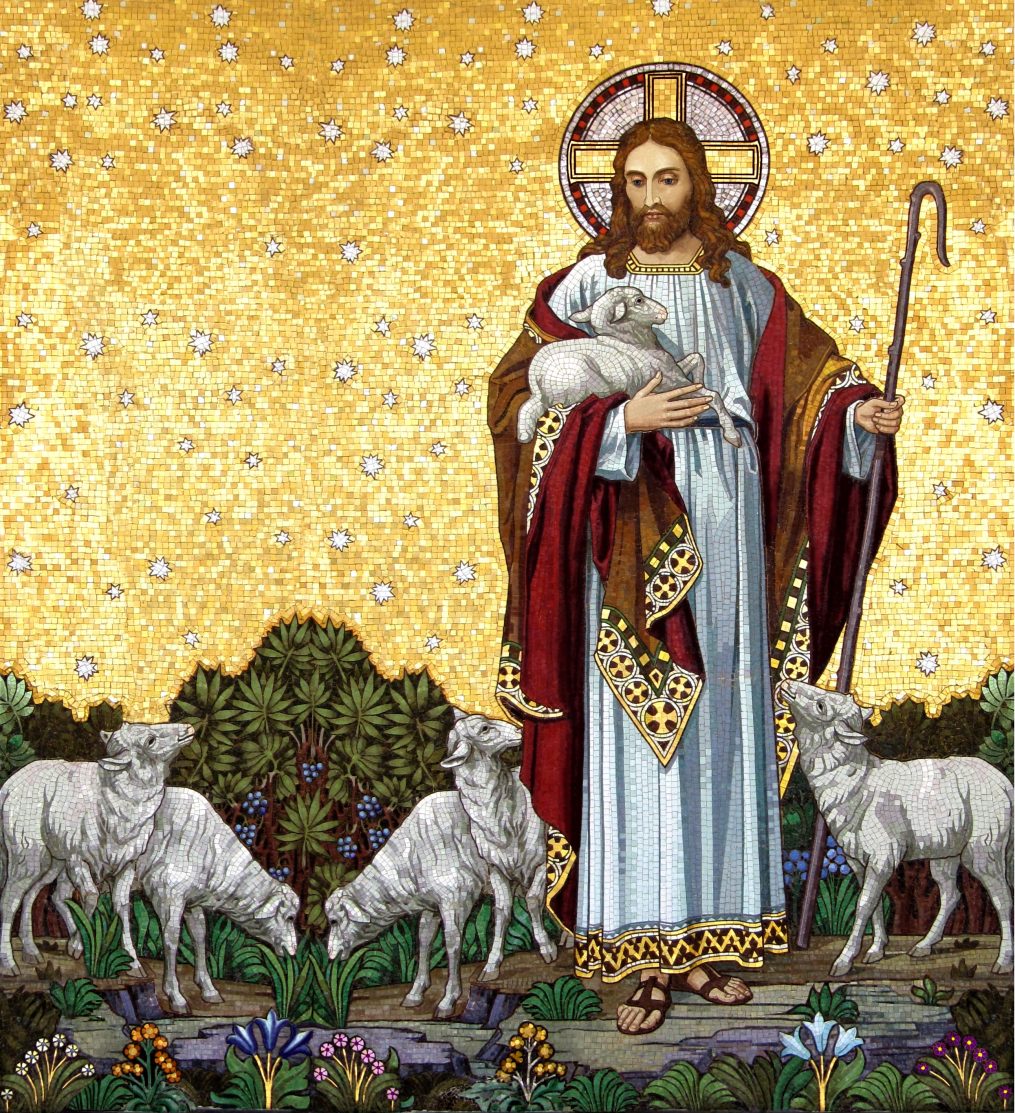Liturgical Colour : White or Red (Martyrs)
Dear brothers and sisters in Christ, today we gather together as one united and holy people of God at the eve of the end of the glorious and most joyful season of Easter which will come to its conclusion tomorrow with the Solemnity of Pentecost Sunday. Today, the readings from the Sacred Scriptures remind us all of the continuing works that each and every one of us as Christians have been entrusted with. All of us as the people whom God had called and chosen, we are all given the respective talents, gifts, blessings and all the things which can help us in our path, in leading lives that are truly worthy of God, in doing our best so that we may inspire others to follow in the path of righteousness and in God’s grace. We must always be the ones to bring forth the light and Good News of God’s salvation to our world today, which is still enshrouded in darkness of sin and evil.
In our first reading today, we heard of the last part of the ministry of the Apostle St. Paul who finally arrived in Rome after a long and arduous journey that we would know and remember if we have read the earlier parts of the Acts of the Apostles. This was the last of all of St. Paul’s missionary journeys, which he undertook to follow God’s guidance and will, to proclaim the Word of God and His salvation to the people of Rome, which was then the capital of the great and mighty Roman Empire. St. Paul therefore braved through the many dangers and challenges that he had to face as he embarked on this journey towards the Eternal City, as Rome has been commonly known by, to proclaim the Lord to everyone, and to establish the foundations of the Church there together with the other missionaries, like St. Peter, who was the first Bishop of Rome.
We heard how the Lord was with St. Paul and his mission and despite him having been technically under arrest of the earlier charges put against him, as he awaited his appeal to the Roman Emperor, he was actually given a lot of freedom to come and go as he pleased, as he continued his ministry and works among the people of Rome, to both the Jews and the Gentiles or non-Jewish people alike, many of whom became believers in Christ, embracing the love of God and His salvation which He has revealed through His Son and His Apostles. St. Paul continued to commit himself thoroughly to fulfil whatever the Lord had entrusted to him to do in proclaiming His Good News, all the way to the end of his life in martyrdom, as Apostolic traditions put St. Paul as being martyred in Rome during the great persecution of Christians by the Emperor Nero.
Then, in our Gospel passage today taken from the Gospel of St. John, we heard of the conversation between the Lord Jesus and His disciples, in which the Lord told His disciples at the Last Supper when they were all discussing about His words and what He had revealed to them, firstly about the one who would betray Him, referring to Judas Iscariot, whom at the time no one would have expected to betray the Lord. Then, they also spoke about the disciple whom the Lord loved, referring to St. John the Apostle himself, the writer of this Gospel. As was common and expected, there was a kind of rivalry and jealousy existing between the disciples, as they all definitely tried to get more favour in the eyes of the Lord, and St. John in particular was one who was a target of the other disciples.
That was because in another occasion in the Gospels, we heard how St. John and St. James, together with their mother came before the Lord, and the mother asked the Lord Jesus for special favours for her sons, to sit by His left and right sides, an act which was met by an immediate unhappiness and discord among the Lord’s disciples. At that time, some if not many among the Lord’s followers did follow Him hoping that He would be the Messiah to restore the Kingdom of Israel, and they likely hoped to gain benefits and honour, glory and power for themselves in the event that the Lord accomplished His works and missions. But they failed to understand that this was not what the Lord intended to do, and as the Lord Himself pointed out to everyone, that it was not their business to know or understand if the disciple beloved by the Lord, St. John the Apostle would not die before he was to see His coming.
Those words indeed came to be true as Apostolic traditions again showed that St. John the Apostle was the only one among all the Apostles who did not suffer martyrdom, and St. John would also see the Lord’s salvation through visions at the Island of Patmos, which he then recorded in his Book of Apocalypse or Revelations. All the other Apostles including that of St. Paul eventually met their end through martyrdom, giving their lives after various kinds of sufferings and persecutions to glorify God. They did not give up on their faith in God, and they continued to labour hard for God and for the people they had been entrusted with. However, this did not mean that St. John did not suffer for his faith and commitment to God. Being the last among the Apostles to survive, he endured many decades of hardships and challenges, persecutions and exiles, including to the Island of Patmos mentioned earlier. In a sense, he was also a martyr, as he endured ‘white martyrdom’ not by shedding his blood but by enduring great sufferings for the Lord’s sake throughout his ministry.
Today, the Church also celebrates the feast of a great Church father and devoted man of God, whose faith and commitment to God can be a great inspiration and strength for all of us. Pope St. John I was one of the early leaders and Popes of the Church, who was known especially for his courage and dedication to God in standing up against even the powerful secular power and bureaucracy, eventually martyred for his faith in God and for his commitment to his mission, just as his many predecessors before him. He was elected as Pope during a rather turbulent time for the Church especially in Rome, due to the clashes between the secular rulers of Italy, then under the Ostrogothic Kingdom, led by its Arian heretic rulers and the Roman Emperors in Constantinople.
Pope St. John I was torn between protecting the orthodoxy of the Christian teachings and faith which the Arian Ostrogothic rulers did not adhere to, and protecting the well-being and the safety of the many people and clergy under his care in Rome and its associated territories. He went on a mission to the Imperial capital in Constantinople to try to mediate the situation and was well received by the Emperor who tried to help the Pope as best as he could do. However upon his return to Rome, Pope St. John I was arrested by the Ostrogothic King, Theodoric the Great who was suspicious at the Pope of having possibly colluded and plotted against him and his kingdom with the Roman Emperor. Thus, Pope St. John I was imprisoned and eventually died in prison from maltreatment and neglect, as a martyr of the faith.
Brothers and sisters in Christ, the Lord wants to remind us all today through all these passages of the Sacred Scriptures and from the life and examples of Pope St. John I, holy Pope and Martyr of the Church, that each and every one of us must be always ready and committed to follow whatever the Lord had called us to do, and to do His will, to proclaim Him, His truth, His Good News and love to everyone, despite the challenges, hardships and trials that we may have to encounter in our paths. We must always remember that God is always by our side and He will continue to provide for our efforts and works in our journey of faith, and while we may have to suffer, but we are suffering together with Him.
Let us all therefore continue to do God’s will and strive to be the most faithful disciples and followers, to be His shining beacons of light and truth in our communities and respective societies today. Even though the season of Easter is coming to an end, let us always remember this does not mean that our responsibilities and commitments as Christians, as an Easter people blessed by the Risen Lord come to an end. Instead, as we continue to carry on living our lives each day, we should continue to commit ourselves each day with ever greater zeal and love for God in all things, now and always. Amen.

